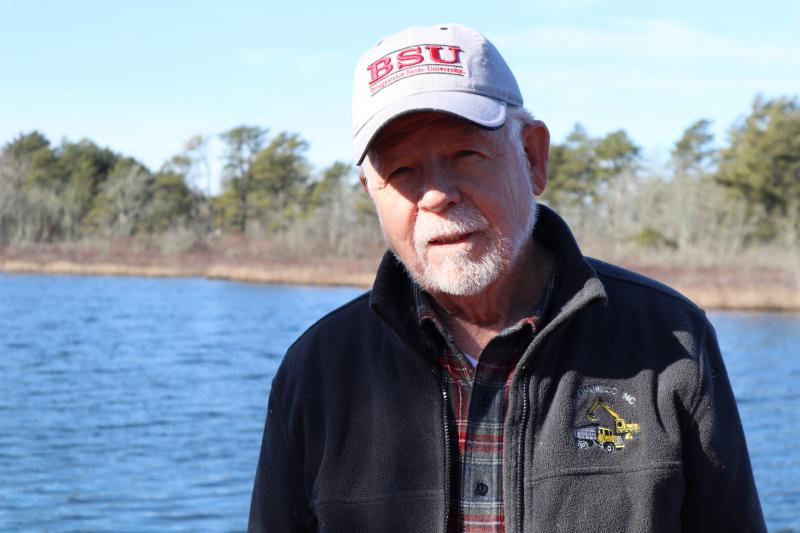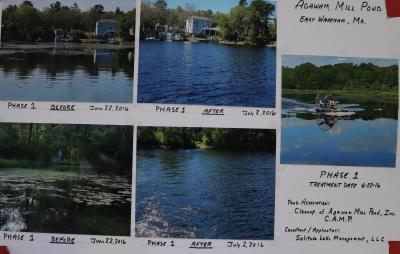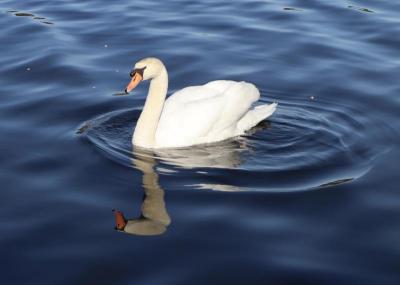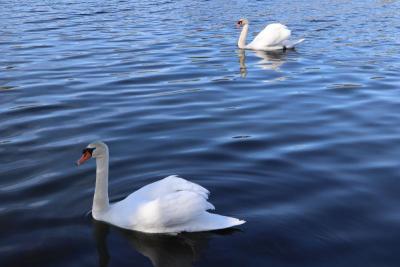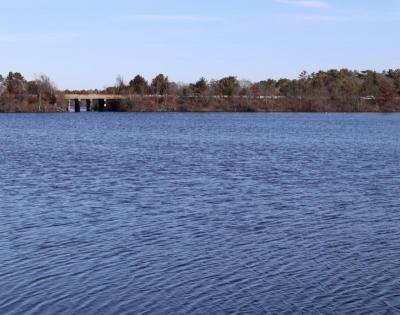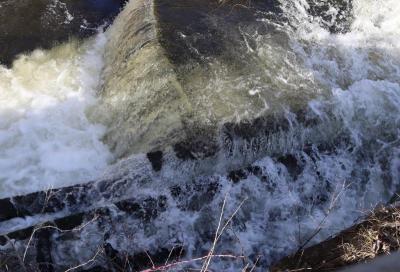Non-profit corporation works to clean up Agawam Mill Pond
Agawam Mill Pond in East Wareham is a popular summer destination for fishing, swimming, kayaking, and other recreational activities, but much of that wouldn’t be possible without the efforts of residents who contribute to the annual cleanup of the pond.
Clean Up of Agawam Mill Pond is an association of residents in the neighborhood abutting the pond, and people who use the pond recreationally. It was formed in 2012 to combat invasive weeds that were crowding the pond. According to President Mike Lenihan, the non-profit corporation is now looking to recruit new members before the start of 2020’s clean up effort.
Lenihan is requesting annual dues of $250 for neighborhood residents, and $100 from other contributors.
While this may seem expensive, Lenihan said “it’s such a small investment to enjoy your property.”
Prior to the group’s efforts, Lenihan said that much of the 150-acre pond was “wall to wall” with fanwort, an invasive species of weed. He said that part of the reason he chose to live next to the pond, was so that he could enjoy the water with his grandchildren, but when they said they didn’t want to go into the pond because of all the weeds, he thought to himself “I’m going to try and fix that.”
In 2012 and 2013, the group collected donations from over 50 neighbors, and hired botanists and environmental scientists to study the pond, and prepare reports on what the problem was, and how to address it.
In 2014 and 2015, the group met with local and state agencies to get permits to treat the pond. Senator Marc Pacheco helped secure state funding, and in 2016-2018 the initial phase of knocking down the weeds took place.
The summer of 2019 started the “maintenance phase “ where aquatic herbicides are used to spot treat sections of the pond.
Lenihan compared the maintenance phase to treating a lawn for weeds. While the treatments are effective for one, or even a few years, the weeds eventually grow again, and more treatments are needed.
For those worried about possible health risks, Lenihan said that the herbicides are “weed specific” and do not pose a threat to human health, or that of native plants and animals in the pond.
Lenihan said that the annual spot treatments cost about $15,000 to $20,000 annually. Last year, the group fell short of its fundraising goal, with a total of about $14,000.
With the help of Solitude Lake Management, the group spot treated seven locations throughout the pond, totaling 16 acres.
In addition to paying dues, Lenihan said that washing boats before, and after going in the pond can help limit the spread of invasive weeds. He added that ⅔ of ponds in Massachusetts have some type of invasive weed, and many of them are brought from boats that inadvertently picked them up at other locations.
The weeds not only limit recreational activities, but they can also pose environmental challenges. According to Lenihan, the weeds provided a breeding ground for mosquitoes, and limited populations of larger fish that require more space to survive.
For example, herring counts have dramatically increased since the treatments began.
In 2015 (a year before the first treatment), 24,398 herring were counted at the fish ladder at the Elks Club. In 2017, that number rose to 31,077, and 102,108 in 2019.
To learn more about Clean Up of Agawam Mill Pond, or to make a donation, contact Lenihan at 617-590-5833, or MikeL@jdamico.com. Clean Up of Agawam Mill Pond is a non-profit corporation, and all donations are tax deductible.



